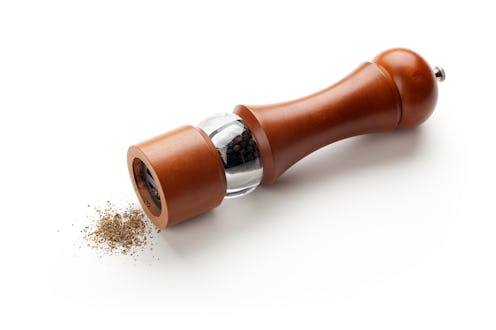Everyone knows about pepper, but nobody knows what pepper is about. It’s almost always seen as second to salt, but the two aren’t even in the same league. Salt is a technical necessity and a bit of a no-brainer; you need it for anything to taste good. Pepper, on the other hand, is a discernment, a choice, an act of free will.
I’m sure the Europeans who started trading for it 3,000 years ago felt the same. And yet, even though much of human civilization was built around the capture and hoarding of things to make food taste better, it’s not uncommon to be served a completely unseasoned meal in the modern day. When I’m at a diner or being held hostage by the hospitality of someone who can’t cook, even an expired shaker of black-and-white dust fills me with the gratitude of an 8th-century Anglo-Saxon monk who has never known any other form of spice.
Pepper has an intense heat, but unlike a hot chile or a more fragrant spice like cumin, it doesn’t steal the show. You could crack pepper on breakfast, nosh on pastrami for lunch, and broil blackened fish at dinner and never really notice how peppered your day was.
When the waiter at a mid-level Italian restaurant appears with a footlong pepper mill it triggers the same part of your brain that lights up when they shave truffles tableside, maybe. A speckle of pepper lends a maturity to any cheesy pasta (although the French would insist on using white pepper in a cream sauce) and one could say adulthood is the point at which someone starts to prefer cacio e pepe over alfredo.
Pepper is a true star, not just an accomplice or distraction, and there’s more to heavy peppering than the finishing touch. As anyone who has made Ottolenghi’s black pepper tofu can attest, pepper is a world-class diva if you let her sing.
Rise and grind, and then grind some more.
